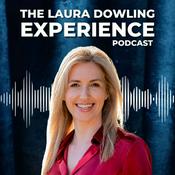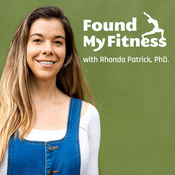Available Episodes
5 of 69
- Gut Health, Celiac Disease & the Future of Microbiome Medicine — With Dr Debra SilbergDr Debra Silberg joins Inside Matters for a deep, wide-ranging conversation on gut health, drug development, and the future of microbiome therapeutics. Dr Silberg is the Chief Scientific Officer at Beyond Celiac, a former global clinical leader at Shire/Takeda and AstraZeneca, and one of the most respected figures in GI medicine and microbiome science. In this episode, we explore: • How she moved from basic science to medicine to pharma leadership • Why the GI field needed so much research — and how it transformed • The real science behind ulcers, H. pylori, and the Barry Marshall story • What she teaches in her popular “Understanding Your Gut” course • Prebiotics vs probiotics — what actually matters • The truth about gluten, celiac disease, gluten sensitivity and rising incidence • The microbiome’s role in inflammation, autoimmune disease, mental health & IBS • Whether microbiome drug development is finally turning a corner • Why the gut–brain axis may be the most exciting frontier in medicine Dr Silberg also shares insights from her work with Finch Therapeutics, her role at Beyond Celiac, and her experience advising the team at Biotics. If you’re interested in gut science, the microbiome, diet, or how modern medicines are built from the ground up, you’ll get a huge amount from this conversation. Be well, trust your gut — and thanks for listening. 00:00 Introduction to Dr Debra Silberg 00:54 Dr Silberg's Career Journey 02:26 Insights on Gut Health and Microbiome 04:05 Understanding GI Diseases and Treatments 07:41 The Role of Diet in Gut Health 15:59 Celiac Disease and Gluten Sensitivity 25:04 Exploring the Microbiome 27:43 Exploring Therapeutic Approaches to the Microbiota 31:36 Challenges in Microbiome Drug Development 34:22 The Gut-Brain Connection and Mental Health 39:13 Transitioning from Academia to Pharma 41:45 Insights into Drug Development and Success Stories 44:55 The Long Journey of Drug Development 52:01 The Role of AI in FDA Reviews 55:04 Quick Fire Round: Future of Microbiome Research You must not rely on the information in this video as an alternative to medical advice from your doctor or other professional healthcare provider. If you have any specific questions about any medical matter you should consult your doctor or other professional healthcare provider. If you think you may be suffering from any medical condition you should seek immediate medical attention. You should never delay seeking medical advice, disregard medical advice, or discontinue medical treatment because of the information in this video.--------59:25
- Unlocking Gut Health: FMT, MicroRNAs, and the Future with Dr Tanya MonganIn this episode, Dr James McIlroy chats with Dr Tanya Mongan, clinical associate professor and gastroenterology consultant at the University of Nottingham. Dr Mongan specialises in gut health, particularly the gut–brain connection and faecal microbiota transplantation (FMT). She talks us through the current state of FMT, why it works so well, and how it’s becoming an increasingly important treatment for conditions like inflammatory bowel disease. We also explore her cutting-edge research into microRNA-based medicines—a new field examining tiny molecules that can help protect the gut and may one day be used to treat conditions linked to an unhealthy microbiome, including cystic fibrosis and neurodegenerative diseases. This episode breaks down the complexities of the microbiome in an easy-to-understand way, covering everything from the limits of current testing to the promise of personalised gut treatments. Dr Mongan also shares insights into exciting new tools such as organ-on-chip models, nano-delivery systems for microRNAs, and even zebrafish models used in gut research. If you want to understand where gut science is heading, what’s real and what’s hype, and how future therapies may become more precise and personalised, this is a must-listen. Chapter Markers 00:00 Introduction to Dr Tanya Mongan and gut health 01:51 Has the microbiome “bubble” burst? 03:45 The big challenges in microbiome science 06:13 What the future of microbiome testing could look like 12:45 Understanding faecal microbiota transplantation (FMT) 19:22 How FMT works and what current research shows 26:29 Why the microbiome is so complex 34:57 MicroRNAs: a new frontier in gut health 37:41 Where microRNAs come from 38:18 How microRNAs help protect the gut 39:00 Why delivering microRNAs is difficult 39:19 Nano-formulation: new ways to deliver microRNAs 40:37 The advantages of organ-on-chip models 42:02 Personalised “gut avatars” 43:58 Zebrafish and other models used in gut research 49:27 Clinical applications and future directions 53:17 Microbiome therapy and FMT in clinical practice 56:57 The future of microbiome research and treatment 01:01:23 Diet, supplements, and the microbiome 01:04:34 Weight-loss drugs and how they affect the microbiome 01:07:52 Fascinating facts about the microbiome 01:09:24 Final thoughts and wrap-up--------1:10:07
- Fatty Liver, Gut Health, and Functional Medicine - Dr Guy NeffRevolutionising Liver Health: The Link Between Gut Health, Genetics, and Lifestyle In this episode, we dive deep into the intricate connections between liver health, gut health, genetic predispositions, and lifestyle factors. Our guest, Gary, a seasoned physician and entrepreneur, shares his extensive experience from pioneering liver disease research in the 90s to running a successful metabolic clinic focused on functional medicine today. Learn about the evolution of understanding fatty liver diseases like NASH and MASH, the impact of processed foods, and the groundbreaking treatments emerging, including the promising effects of GLP-1 therapies. Gary also discusses the pivotal role of a clean diet, exercise, and quality sleep in managing liver health, and the challenges of implementing these changes in a clinical setting. Don't miss this insightful conversation packed with practical advice and forward-thinking approaches to improving liver and overall metabolic health. 00:00 The State of Food Quality in America vs Scotland 02:39 Understanding Fatty Liver Disease: Past and Present 05:29 Genetic and Environmental Factors in Fatty Liver Disease 08:13 The Evolution of MASH: From NASH to Metabolic Health 10:46 Emerging Treatments and Medications for Liver Disease 13:35 The Role of GLP-1s in Managing Liver Health 16:18 The Gut–Liver Connection: A Historical Perspective 19:07 Building a Successful Liver Clinic: Insights and Challenges 33:52 Understanding Metabolic Health and Genetic Testing 35:13 The Importance of Gut Health 37:39 Transforming Workplace Wellness Initiatives 45:48 The Future of Functional Medicine 51:30 Addressing Liver Health and Alcohol Consumption Takeaways The quality of food in America is declining, impacting health. Fatty liver disease is increasingly common, especially among those with higher body mass indexes. Genetic predisposition plays a significant role in liver disease. MASH is a critical condition that combines fatty liver with inflammation. Advancements in GLP-1 medications show promise for treating liver disease. Gut health is essential for overall wellness and liver health. Guy Neff's journey reflects a blend of medicine and business acumen. Building a successful liver clinic requires navigating numerous challenges. Functional medicine is gaining traction as a holistic approach to health. Routine testing for liver health is crucial for early detection and intervention. You must not rely on the information in this video as an alternative to medical advice from your doctor or other professional healthcare provider. If you have any specific questions about any medical matter you should consult your doctor or other professional healthcare provider. If you think you may be suffering from any medical condition you should seek immediate medical attention. You should never delay seeking medical advice, disregard medical advice, or discontinue medical treatment because of the information in this podcast.--------1:10:23
- Decoding the Microbiome: Genetic Discoveries with Dr. Ran BlekhmanIn this episode, Dr. James McIlroy interviews Dr. Ran Blekhman, an associate professor at the University of Chicago, about the microbiome and its role as 'our second genome.' Dr. Blekhman shares his research findings on the genetic and environmental factors that shape the microbiome, the heritability of microbial genes, and the relationship between the human genome and microbiome. They also discuss Dr. Blekhman's groundbreaking research that analysed over 168,000 samples to understand global microbiome patterns, the influence of early-life microbiome development, and the potential of microbiome-based diagnostics and therapeutics. Tune in for a comprehensive dive into one of the most promising areas of genetic and microbial research. 00:00 Introduction to Dr. R Blackman and the Microbiome 01:23 Podcast Growth and Listener Engagement 01:56 Starting the Conversation with Dr. Blackman 02:04 Exploring the Second Genome 02:24 Human Genome vs. Microbiome 03:23 Genetic Interactions with the Microbiome 04:02 Understanding Microbial Genes and Functions 05:40 Heritability and Environmental Factors 06:53 Microbiome Diversity and Heritability 08:57 Research on Microbiome Heritability 17:18 Baboon Model System for Microbiome Studies 18:56 Population Scale Microbiome Research 25:27 Global Patterns and Data Integration 33:36 The Untapped Potential of Microbiome Data 35:08 Hypotheses and Discoveries in Microbiome Research 36:46 Geographical Variations in Microbiome 49:18 Technical Challenges and Methodologies 52:20 AI and Machine Learning in Microbiome Studies 54:59 Future Directions and Clinical Applications 01:00:38 Exploring Early Life Microbiome 01:03:30 Conclusion and Further Reading--------1:05:23
- Exploring the Frontiers of Microbiome Science — A Conversation with Dr Johan van Hylckama VliegIn this episode of Inside Matters, I'm joined by Dr Johan van Hylckama Vlieg, Chief Scientific Officer at Freya Biosciences. As a global leader in microbiome research, Freya is pioneering innovative approaches to women’s health through biotherapeutics that are rooted in groundbreaking microbiome science. 00:00 Introduction to Dr. Johan van Hylckama Vlieg and Freya Biosciences 01:39 The Potential of the Microbiome 03:08 Challenges in Translating Microbiome Science to Treatments 05:29 The Rise and Fall of Microbiome Hype 08:58 Immunotherapy and the Microbiome 20:37 Women's Health and the Microbiome 35:01 Tools for Measuring Vaginal Dysbiosis 35:31 Intervention Studies and Donor Programs 36:23 Engraftment and Immune Response 37:39 Strain-Level Analysis and Engraftome 39:08 Vaginal Microbial Transplantation 44:13 Single Strain vs. Consortia 47:15 Freya's Development and Future Vision 50:04 Lessons from Kaleido 01:00:47 The Gates Foundation and Global Health 01:03:45 Predictions for the Microbiome Field A Hidden World with Huge Potential Dr van Hylckama Vlieg has spent more than 20 years exploring the vast and complex world of the microbiome — the trillions of microbes that live in and on our bodies. These tiny organisms play a huge role in our health. Over time, science has moved from simply identifying these microbes to understanding how they influence our immune system, metabolism and overall wellbeing. Yet despite this progress, turning those discoveries into real treatments remains a challenge. Dr van Hylckama Vlieg explained that while the science is compelling, the industry needs solid clinical data to bring investors and pharmaceutical companies on board. He sees microbiome-based immunotherapy as a particularly exciting area where transformative breakthroughs could lie ahead. Why Women’s Health Matters Freya Biosciences has chosen to focus on the female reproductive tract — a part of the body where the microbiome is less complex than in the gut but just as important. Dr van Hylckama Vlieg spoke about the key role of lactobacilli in maintaining vaginal health. When these helpful bacteria are dominant, they protect against infections and support fertility. When the balance is lost, a state known as dysbiosis, the risks rise significantly. He also highlighted a wider issue — the historical lack of funding and focus on women’s health. This is something Freya and others in the field are determined to change, and their research is already moving things in the right direction. A Bold New Treatment: Vaginal Microbiota Transplantation One of Freya’s most innovative developments is vaginal microbiota transplantation or VMT. Inspired by the success of faecal microbiota transplants for gut health, this approach involves transferring a healthy vaginal microbiome into someone with dysbiosis. Early results are promising. Many women show a successful shift to a healthier microbial state. Looking ahead, the goal is to leverage the successes of these natural transfers and develop targeted microbial treatments that can be scaled up. This could lead to safe and widely available therapies that restore balance and improve reproductive health. Challenges and the Road Ahead Reflecting on his previous experience at Kaleido, another microbiome venture, Dr van Hylckama Vlieg spoke about the need for strong links between science, clinical design and commercial strategy. Though Kaleido faced setbacks, the underlying science remains solid and is being explored by others in the field. His outlook remains positive. With more trials underway and deeper understanding of how microbiomes influence disease, there is hope that these therapies will move from the lab into everyday medicine. Particularly in areas like immunotherapy, the potential to address root causes rather than just symptoms could be a game-changer. Final Thoughts Dr van Hylckama Vlieg’s insights offer a compelling look into a rapidly evolving area of science. As researchers and companies like Freya push forward, the possibilities for transforming healthcare through the microbiome are growing fast. From improving fertility to preventing infections, these tiny organisms may hold the key to better outcomes for millions — especially in areas of health that have long been underserved.--------1:08:21
More Health & Wellness podcasts
Trending Health & Wellness podcasts
About Inside Matters
The gut health show – conversations with the most forward-thinking minds in health, fitness, science, nutrition and business. In-depth discussions about how our gut microbiome impacts our health, well-being, mood and more.
Inside Matters was conceived by microbiome expert Dr James McIlroy as a platform to raise awareness of the importance of the gut microbiome. Our aim is to inspire and educate listeners around the world about the importance of gut health, equipping them with the knowledge they need to transform their lives for the better.
Podcast websiteListen to Inside Matters, UNTAPPED and many other podcasts from around the world with the radio.net app

Get the free radio.net app
- Stations and podcasts to bookmark
- Stream via Wi-Fi or Bluetooth
- Supports Carplay & Android Auto
- Many other app features
Get the free radio.net app
- Stations and podcasts to bookmark
- Stream via Wi-Fi or Bluetooth
- Supports Carplay & Android Auto
- Many other app features


Inside Matters
Scan code,
download the app,
start listening.
download the app,
start listening.






































